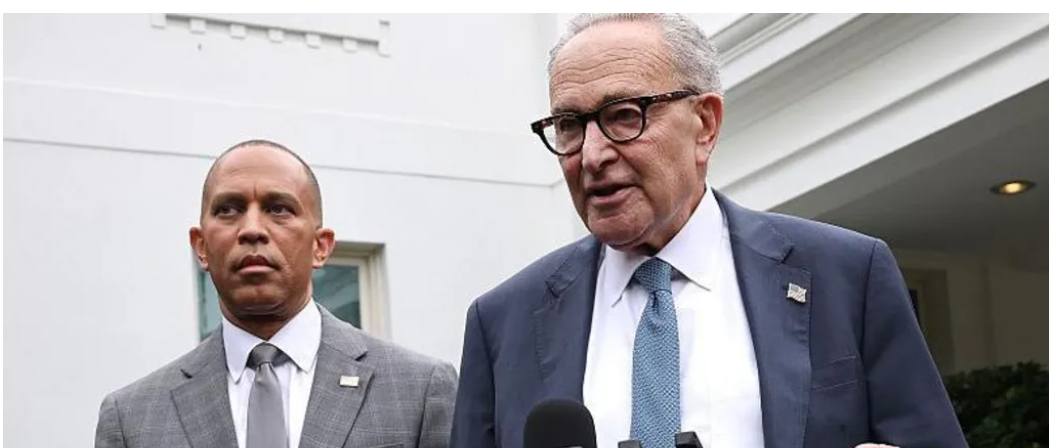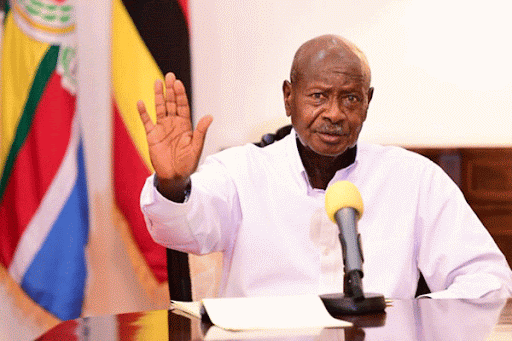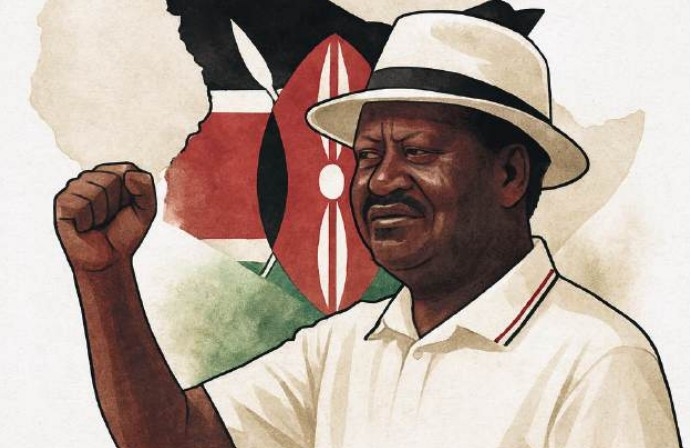

The US is hurtling towards a government shutdown on Tuesday night, and there appears to be little appetite on either side of the partisan divide to avoid it.
A last-ditch meeting between President Donald Trump and Democratic leaders in Congress made little progress. If anything, both sides have been digging deeper into their positions.
After the meeting, John Thune, the Republican Senate majority leader, accused the Democrats of "hostage taking".
Democratic Senate leader Chuck Schumer said there were still "very large differences" between his party and the White House.
No one sounded optimistic.
Republicans want a short-term extension of current spending levels – essentially kicking the legislative can a bit farther down the road.
They're happy with the way things are going, particularly since the Trump administration has been implementing spending cuts on its own, without the help of congressional budget-setters.
Democrats want that practice to end.
What's the point, they wonder, with negotiating spending-level agreements if Trump will just ignore them?
They also want a firm agreement to renew the government health-insurance subsidies for low-income individuals that expire at the end of the year – something Republicans have been reluctant to do so far.
Those are the negotiating positions of both sides, but government shutdown fights are about more than policy – they're about politics.
Republicans think they have the political high ground.
The party that makes demands in exchange for keeping the government open – in this case the Democrats – typically gets the lion's share of the blame when a shutdown happens.
Trump and Republican congressional leaders are already claiming that they are the reasonable ones.
They're the ones, they say, who simply want to buy more time to negotiate without the adverse consequences of a shutdown.
"You don't put a gun to the American people's head and say, 'Unless you do exactly what Senate and House Democrats want you to do, we're going to shut down your government'," Vice-President JD Vance told reporters outside the White House.
Of course, Democrats don't see it that way.
They believe healthcare is a winning issue for them, so they want the debate to be on whether millions of Americans will lose the ability to afford medical insurance.
Temporarily funding the government for seven weeks, in their view, just moves that subsidy deadline closer without any appreciable progress.
Complicating all this for Democrats is the reality that many Republicans seem at peace with an extended government closure.
White House budget chief Russ Vought recently circulated a memorandum explaining how the Trump administration would use a shutdown to make new, long-term reductions in federal spending and employment rolls.
Positions and government programmes deemed "nonessential" during the closure will be permanently shuttered – an expansion of the Department of Government Efficiency (Doge) cuts from earlier this year.
But Democratic leaders seem to believe the threats are a bluff or a negotiating tactic.
Senate Minority Leader Chuck Schumer called it "an attempt at intimidation".
"Donald Trump has been firing federal workers since day one - not to govern, but to scare," Schumer said. "This is nothing new and has nothing to do with funding the government."
Schumer and his fellow Democratic congressional leaders are also under intense pressure from their political base to hold fast in the face of Republican attacks.
In March, Senate Democrats faced withering criticism from within their own party for reaching a six-month spending agreement with Republicans even as Trump was in the midst of his Doge budget-slashing campaign.
This time around, Democrats may feel compelled to trigger a shutdown to demonstrate their resolve.
In the end, however, a shutdown fight is a test of wills. It's a test of which side is best able to tolerate political pain.
Democrats may see a benefit to fighting Republicans, but will they be willing to stand aside as cherished federal programmes and government services – including those for low-income Americans – are shuttered?
Republicans may talk tough about slashing government, but as the incumbent party they could have the most to lose if the public mood dramatically sours.
The most recent government shutdown, during Trump's first term, lasted 35 days, setting a record as the longest in American history.
Although the fight was over spending on the president's proposed US-Mexico border wall, it ended because federal air traffic controllers – who were working without pay – began staying home, threatening massive disruption to US air travel.
Shutdowns can be unpredictable. And while both sides seem to be itching for a fight, there's no telling when, or how, this fight will end.

















